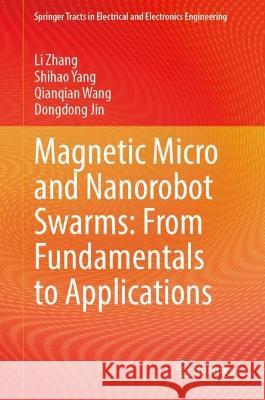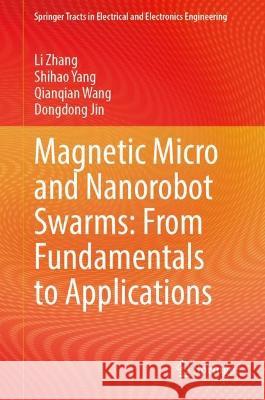topmenu
Wyniki wyszukiwania:
wyszukanych pozycji: 2
 |
Magnetic Micro and Nanorobot Swarms: From Fundamentals to Applications
ISBN: 9789819930357 / Angielski Termin realizacji zamówienia: ok. 22 dni roboczych. |
cena:
562,23 |
 |
Magnetic Micro and Nanorobot Swarms: From Fundamentals to Applications
ISBN: 9789819936946 / Angielski / Miękka / 2024 / 352 str. Termin realizacji zamówienia: ok. 22 dni roboczych. This book is focused on the attractive emerging field of micro-/nanorobot swarms (microswarms). It introduces fundamental understandings of various microswarms, including pattern generation, transformation, locomotion, and imaging. This book also demonstrates applications of micro-/nanorobot swarms in different fields, such as biomedical, environmental, and electrical applications. The detailed theoretical analysis and experimental demonstrations in this book provide readers ranging from students to researchers with a realistic picture of progress achieved in the field of micro-/nanorobot...
This book is focused on the attractive emerging field of micro-/nanorobot swarms (microswarms). It introduces fundamental understandings of various mi...
|
cena:
401,58 |










